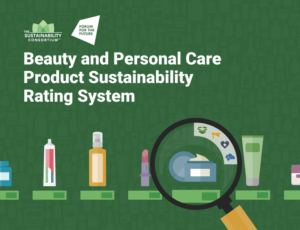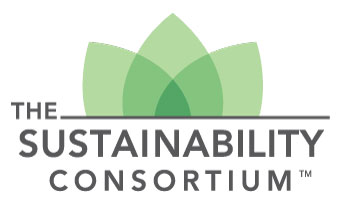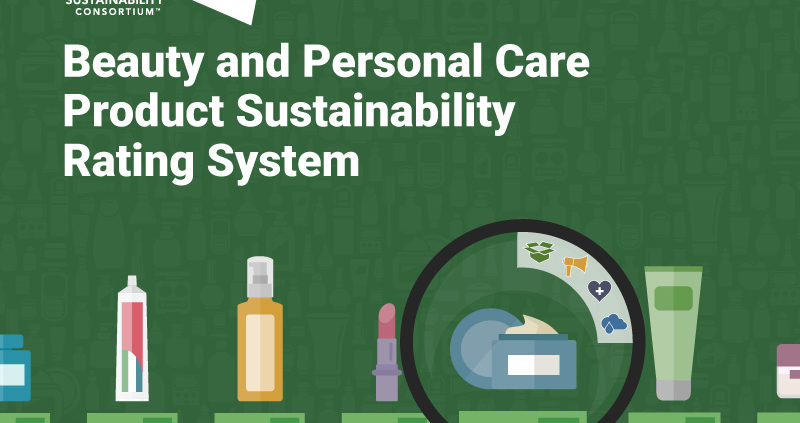Beauty and Personal Care Product Sustainability Rating System

| Author(s): | [doc_author] |
| Date Published: | [doc_create_date] |
| Projects: | [projects] |
| Number of Downloads | 3611 |
| Size | 4.3 MB |
| File | Action |
|---|---|
| TSC® Beauty and Personal Care Product Sustainability Rating System | Download |
Global non-profit organizations Forum for the Future (Forum) and The Sustainability Consortium (TSC) are announcing a significant step toward a more sustainable and transparent beauty and personal care product industry. Forum for the Future, along with TSC technical guidance, gathered representatives from across the beauty and personal products supply chain to develop a common assessment tool for evaluating the sustainability of beauty and personal care products, with the goal of simplifying and aligning the wide array of product assessment criteria in use today.
Participating organizations included Burt’s Bees, Colgate, CVS, Eastman Chemical, Environmental Defense Fund, Firmenich, Henkel, Johnson & Johnson, Method, Procter & Gamble, Sephora, Seventh Generation, Target, Unilever, Walgreens, and Walmart; input was also provided by a number of other industry stakeholders and thought leaders. Forum designed and facilitated the process that began with the Beauty and Personal Care Product Sustainability Summit in 2014, which was co-hosted by Target and Walmart and convened by Forum. The Summit and subsequent work responded to growing consumer and NGO demand for sustainable products, and the understanding that meeting this need would require key industry players coming together to find solutions.
The assessment tool includes a set of key performance indicators (KPIs), along with a proposed method of scoring products against these indicators. A range of sustainability attributes and activities, from basic practice to aspirational leadership, are reflected within the KPIs. Retailers and other companies may voluntarily use this tool to independently and individually evaluate product sustainability, with scores intended to remain confidential between retailer and supplier. Resulting product assessment may be used to facilitate supplier-retailer conversations, drive improvements in supply chains, and independently evaluate and incentivize better, more sustainable products.



 The Sustainability Consortium | ©2019 Arizona State University and University of Arkansas
The Sustainability Consortium | ©2019 Arizona State University and University of Arkansas